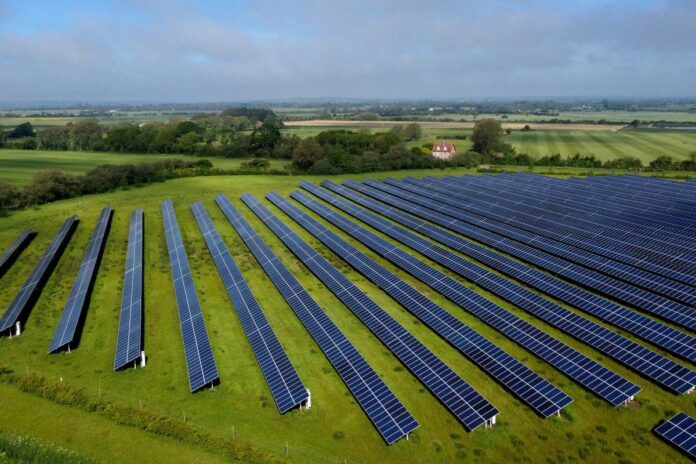UK households could collectively lose up to £5 billion a year if a law blocking large-scale solar farms on productive agricultural land is passed, energy analysts have said. Tabled as an amendment to the Energy Bill, the proposed legislation would stop projects over 500 acres in size from being built when at least 20% is classified as ‘best and most versatile agricultural land’. If approved, it would leave each UK household up to £180 a year worse off because the equivalent electricity would be produced by using more expensive gas instead, analysts from the Energy and Climate Intelligence Unit (ECIU) said. The proposed change was introduced by Alicia Kearns, Conservative MP for Rutland and Melton in the East Midlands , who is campaigning against a large solar farm being built in her constituency. This makes little sense when new solar farms will only need a tiny fraction of the available farmland, presenting no real risk to food security whilst providing a major boost to Britain’s energy security She argues the plant, at 1,144 acres, is too big for her county and that its supply chain may be linked to the forced labour of Uighur Muslims in Xinjiang , China. Developer Canadian Solar has said its internal investigations have found no evidence of this. The UK Government wants to build 70GW of solar capacity by 2035 and the ECIU said a large proportion of this will have to come from infrastructure installed on the ground. They calculated that of England’s 58GW share of the UK’s total target, between 23GW and 38GW will need to be ground-based, depending on how much is added to rooftops, although they estimate that buildings have only enough space to accommodate up to 22GW on top of the 12.7GW of total solar capacity already installed. Tom Lancaster, land analyst at ECIU said: ‘There has never been a cheaper form of energy than solar, and putting even more barriers in place to its rollout will cost the public dear, whilst locking in dependence on imported gas. ‘This makes little sense when new solar farms will only need a tiny fraction of the available farmland, presenting no real risk to food security whilst providing a major boost to Britain’s energy security.’ We continue to support deployment of solar panels on brownfield and low and medium grade agricultural land, alongside rooftop solar panels, to help us achieve our ambition of 70GW solar capacity by 2035 Department for Energy Security and Net Zero The ECIU said almost 173,000 acres will be needed to meet the solar target, which accounts for 0.7% of English farmland, and if the amendment to the Energy Bill is passed it will prevent millions of acres from being suitable for solar farms. MPs are yet to debate and vote on the amendments and the proposed solar restrictions are just one of dozens of suggestions that may or may not be passed. A Department for Energy Security and Net Zero spokesperson said: ‘Last year, renewables accounted for over 40% of our electricity, increasing to almost 48% in the first quarter of this year, and solar is a key part of our plans to bolster our energy independence. ‘As the most significant piece of energy legislation in a generation, the landmark Energy Bill is set to provide a cleaner, more affordable, and more secure energy system that is fit for the future. ‘We continue to support deployment of solar panels on brownfield and low and medium grade agricultural land, alongside rooftop solar panels, to help us achieve our ambition of 70GW solar capacity by 2035.’
Proposed solar farm law change could see households ‘£5bn a year worse off’
Sourceindependent.co.uk
RELATED ARTICLES


